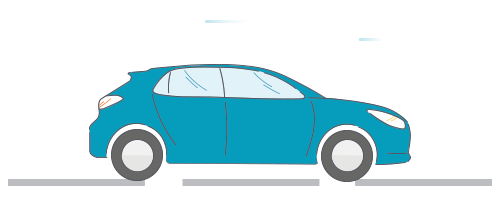New Zealand has one of the oldest vehicle fleets in the developed world. Why is this so dangerous? What can be done to improve this hazardous problem?
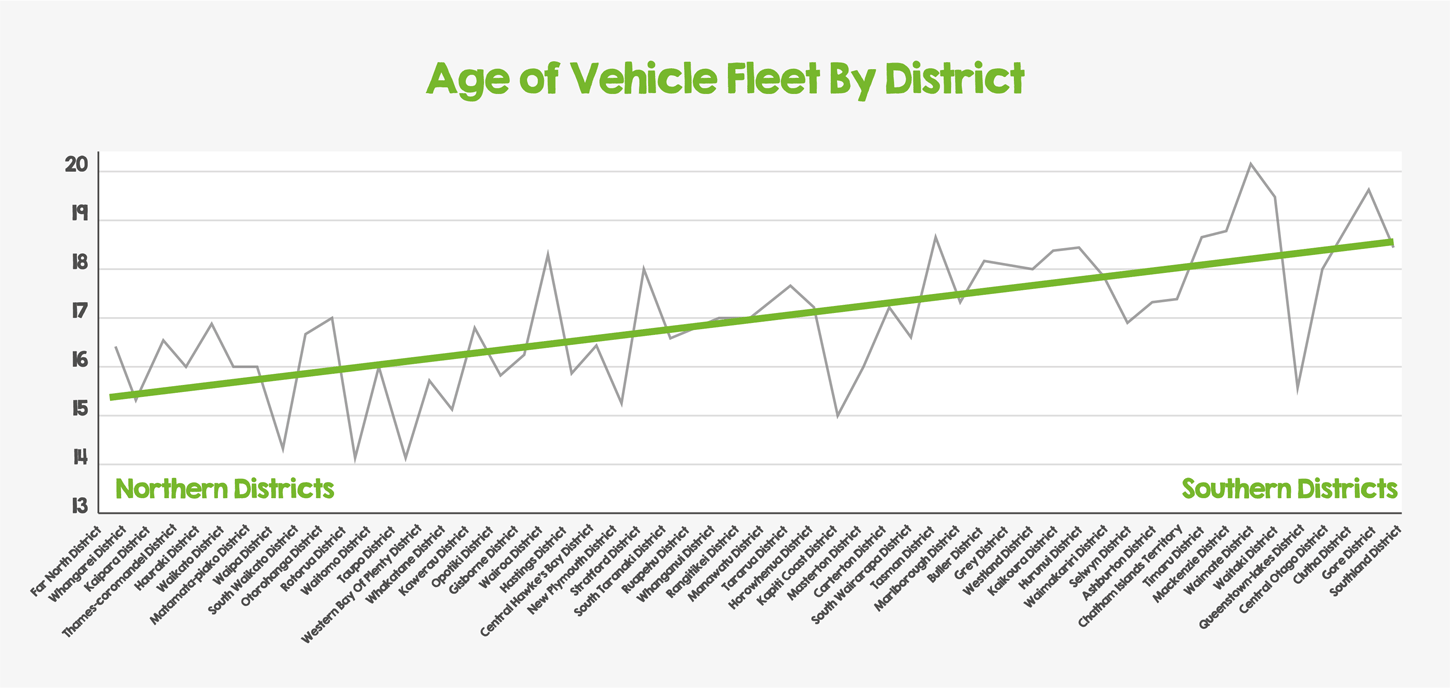
Looking at some of the largest countries in the developed world, New Zealand has a comparatively old vehicle fleet at 14.9 years. That’s nearly twice that of the UK at 8.1 years, and significantly older than Australia and the USA at 10.1 years.
In fact, government stats show us that over 1 in 10 cars on the roads are at least a staggering 28 years old.
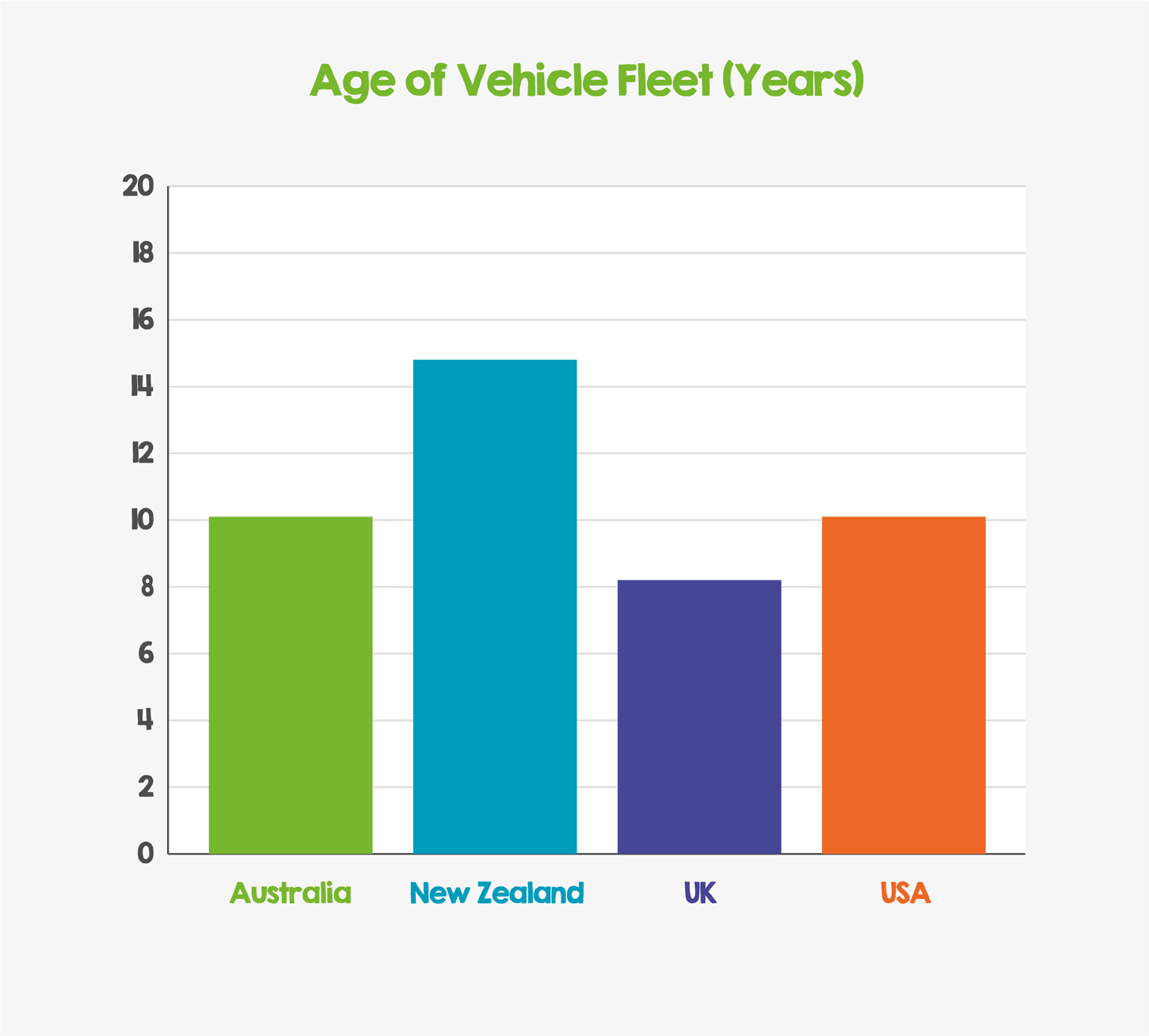
Data source: NZTA
While the age of the NZ fleet is generally high, this does vary substantially across districts and cities. Wellington and Auckland boast the youngest fleet at an average age of 13 years, compared to the oldest districts – Waimate and Gore at 20 years old. On the whole, we see the youngest fleets are in cities and the fleet age increases the further south you go.
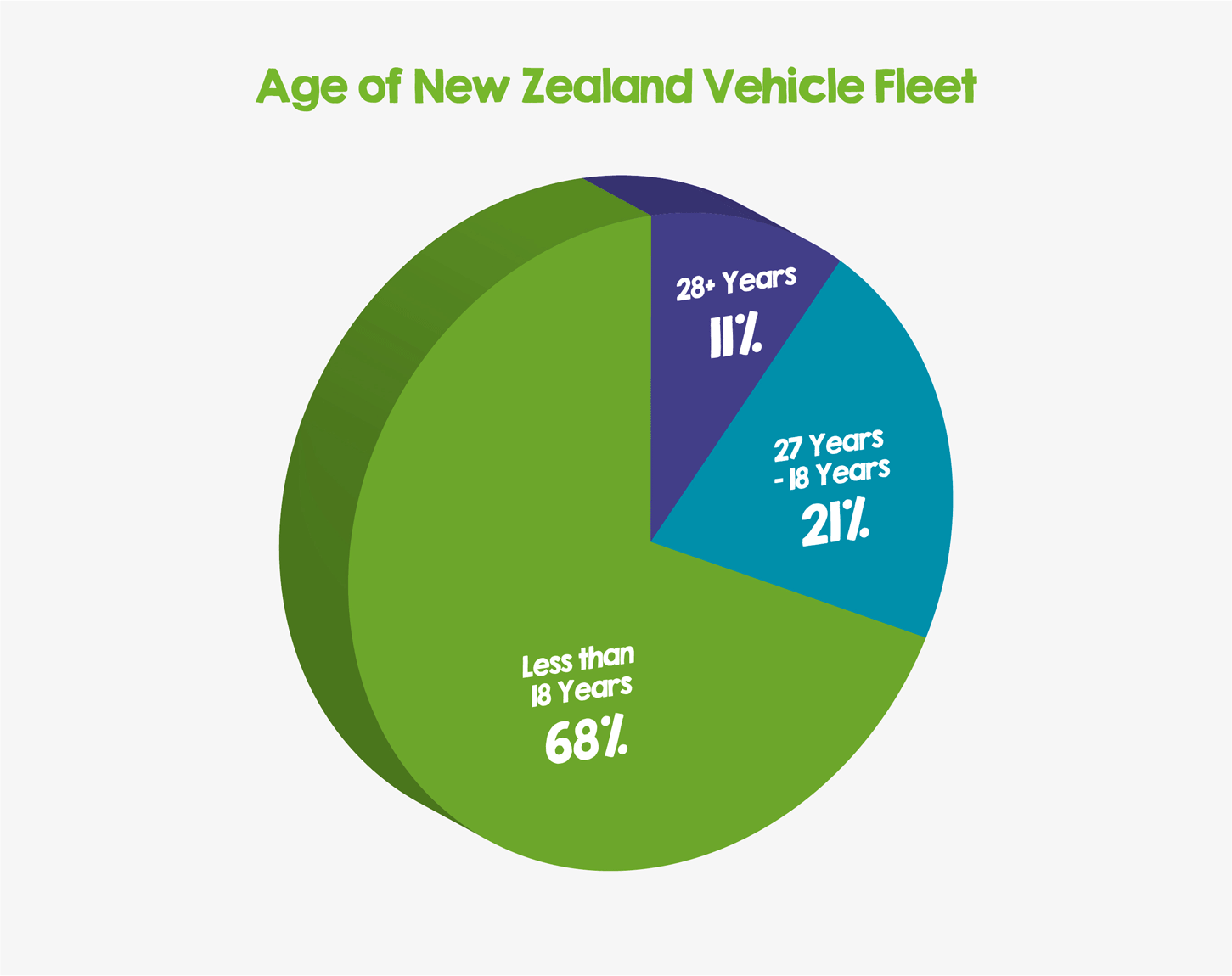
Data source: NZTA
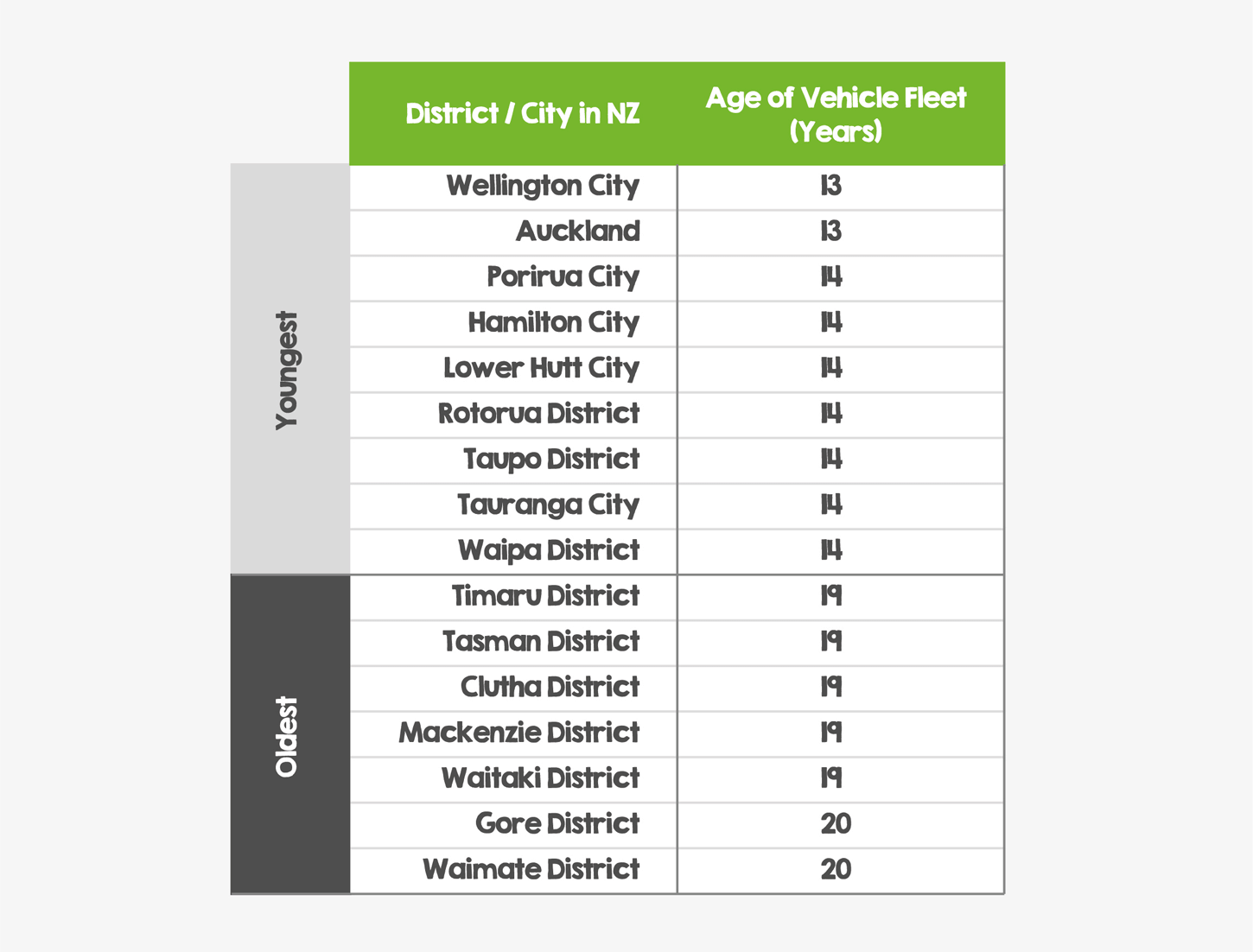
Data source: Govt.nz
These older cars on our roads come with a wealth of danger for drivers, passengers and the environment.
Not only do they generate higher levels of harmful emissions, they are proven to have an impact on the likelihood of fatal crashes.
Firstly, old cars are producing greater levels of harmful emissions into the environment than newer cars. Increased emissions from older cars, such as hydrocarbons, carbon monoxide and nitrogen dioxide contribute to air pollution and cause serious adverse health effects and respiratory problems. Modern vehicles are usually engineered to reduce these harmful emissions.
Secondly, according to a study by the AA and our Transport Agency, ‘people are twice as likely to die in a crash if the car they’re travelling in was built before 2000’. That’s a staggering 32% of the cars on the New Zealand roads. The AA advise anyone to avoid buying a vehicle built in the 20th Century.
These stark results are a huge wake-up call about the dangers of our old vehicles on the road.
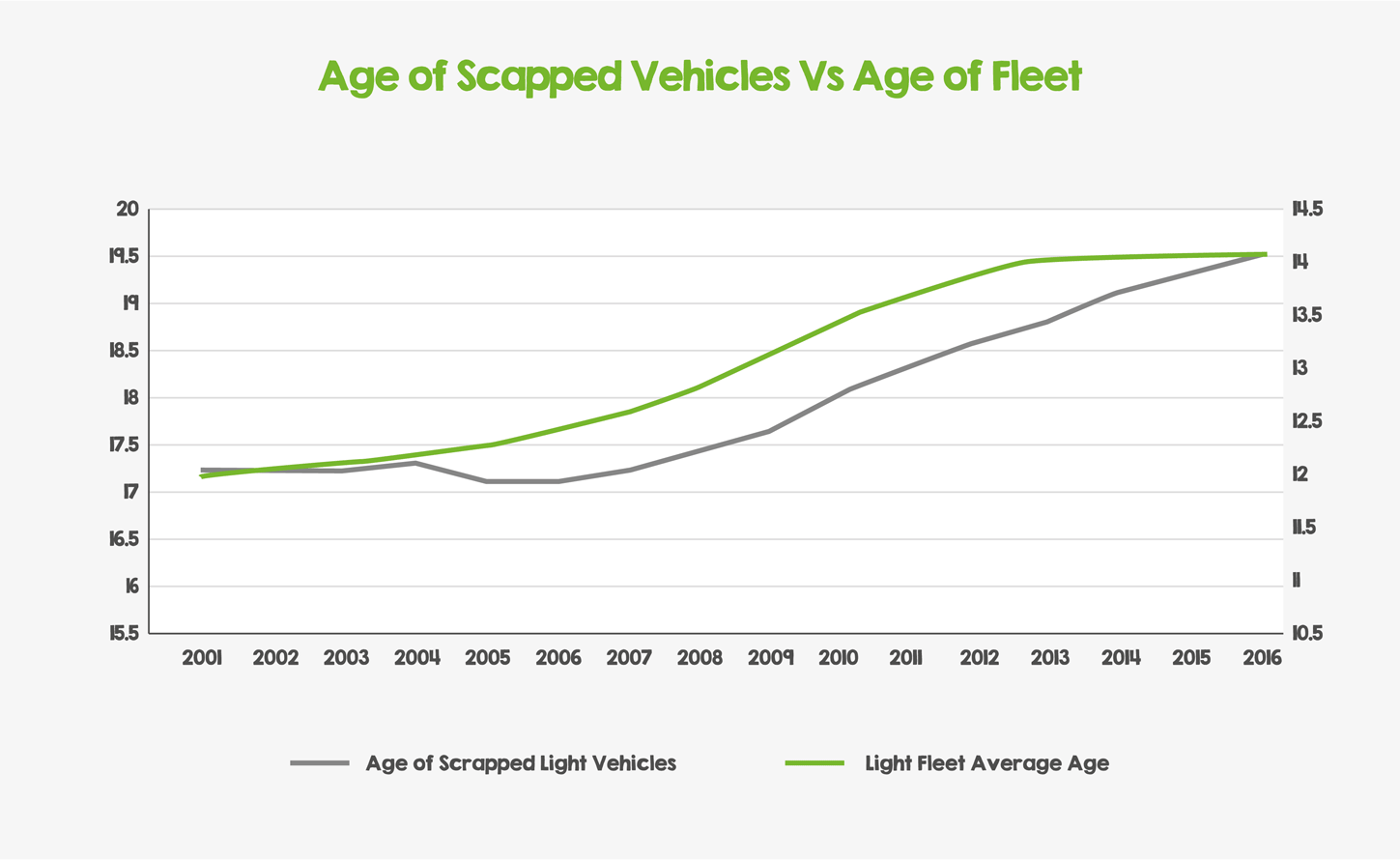
Data source: NZTA and CarTakeBack
As we can see, the longer we wait to scrap a car – so the older it is when it’s scrapped – correlates with the overall age of the New Zealand vehicle fleet.
Scrapping cars earlier could help to increase vehicle safety if they are replaced with new cars.
However, if traded for second hand cars, this wouldn’t necessarily help to reduce the fleet age and therefore the dangers of driving these older cars.
Here we hit the issue that a lot of people can’t afford to replace their cars with a brand-new motor due to their cost.
Scrappage recycling schemes could help to improve this hazardous vehicle issue.
Scrappage schemes are common in developed countries such as the UK, offering financial incentives to drivers when they scrap a vehicle nearing the end of its life. Large vehicle manufacturers in the UK offer generous contributions to new cars when a driver scraps an old car. With successful marketing, these could encourage people to scrap cars earlier and also assist with the costs of purchasing a new car.
Get an instant price for your scrap car.
We need to maintain strict control of the used cars imported into our country, ensuring that we reduce the number of high-emitting used vehicles entering.
The NZ AA support stricter regulations on vehicle imports to New Zealand; ‘Updating import rules over time will help reduce the age of the New Zealand vehicle fleet, resulting in better emission standards and safety benefits.’
The AA also provide us with a list of ‘Practical measures to reduce vehicle emissions’ here. The suggest feasible measures such as fuel quality improvements, clean alternative fuels, recycling schemes, and much more.
